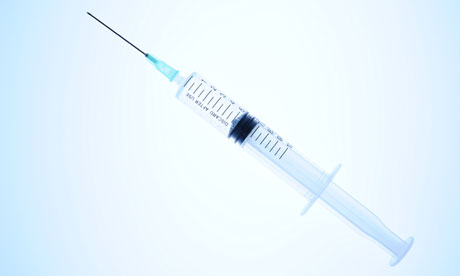
Vaccinations are no longer just for kids. The NHS will be offering jabs against shingles to people over 70 years old from September this year. More than 30,000 people in this age group get shingles every year.
Until this year, shingles vaccinations have only been available privately in the UK. In America the injection is recommended for people over 60 years old, as the condition becomes more common the older people get: half of all people who reach 85 will have had shingles.
You cannot get shingles unless you have had chickenpox (varicella zoster), but most of us have had this illness at some point in our lives, even if it was too mild to notice. After recovering from chickenpox, some of the virus manages to hide away and lie dormant in nerve cells. If it gets reactivated years later, it can cause shingles. No one knows why this happens: the risk rises with lowered immunity from other illnesses or medications but also occurs naturally with age. Unlike chickenpox, you cannot catch shingles from anyone else.
If the virus gets reactivated, it travels up the nerve to the skin, causing a blistering rash that is limited to the segment of skin that is served by that nerve. Shingles usually lasts for up to four weeks but often has complications, such as post-herpetic neuralgia, a long lasting, sometimes severe burning pain that is debilitating and can last for years. It affects between 10-15% of people who get shingles. Shingles can also cause lasting hearing loss, and nerve or brain damage, and if it affects the eye can lead to blurred vision and blindness if left untreated.
Antiviral drugs such as acyclovir can help if they are given within 72 hours of symptoms starting. People are rarely given this treatment in time, though.
However, the question remains: is shingles severe enough to warrant vaccination against it?
The solution
In older people, one third to a half experience complications related to shingles. There are more benefits attached to vaccination than risks, even though it works for a maximum of six years and is only effective for around 50% who undergo it. The vaccine contains a small dose of a live – but seriously weakened – version of the chickenpox virus that stimulates a person's immune response to prevent reactivation to latent varicella zoster. Large studies show that the vaccine is safe. However, it can make the injection site red, tender and swollen (one dose is usually in the upper arm) and result in headaches. If the vaccine doesn't stop you getting shingles, it may reduce the risk of post-herpetic neuralgia by two-thirds.

